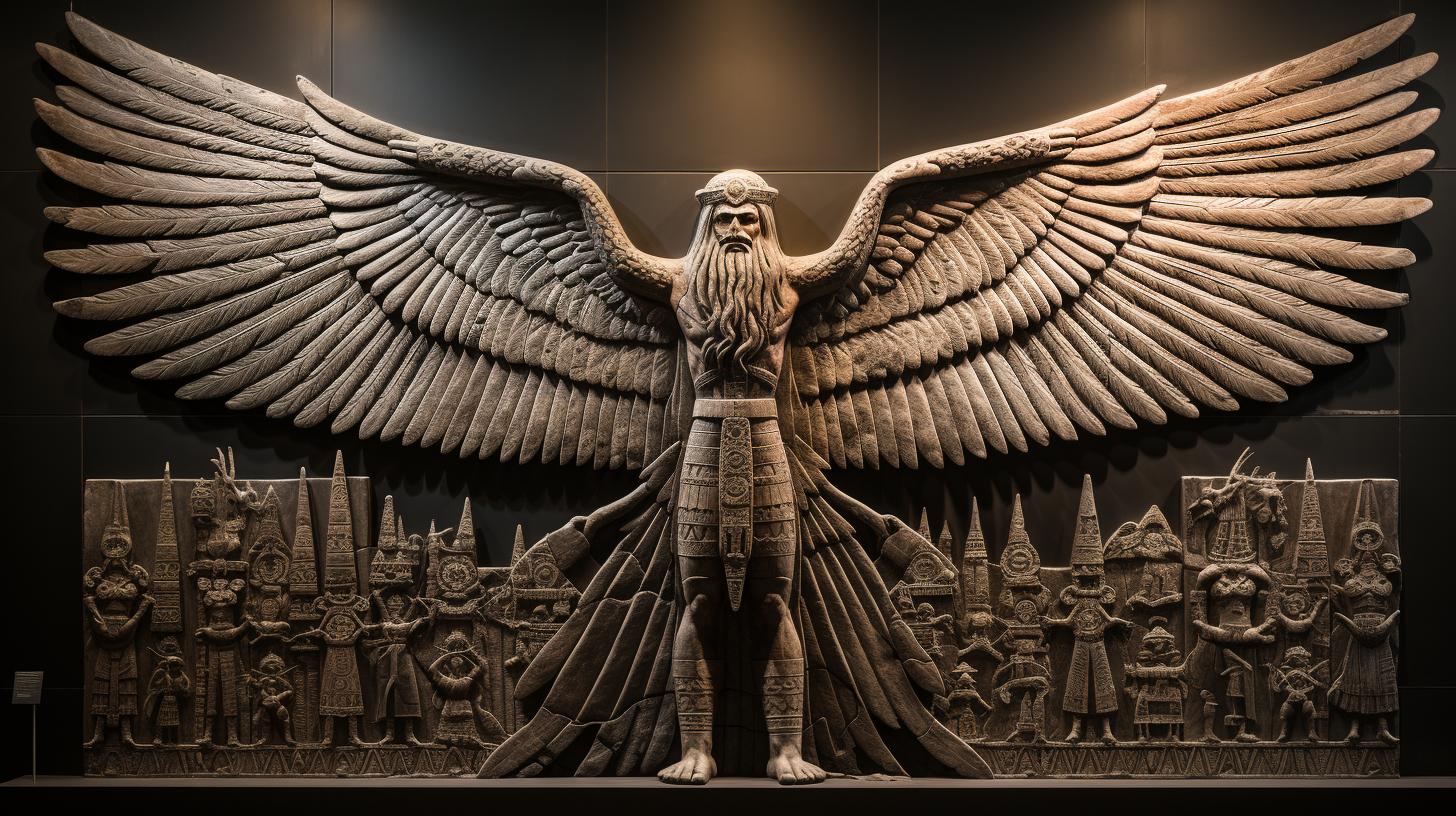Kishar Goddess: Exploring the Ancient Mesopotamian Deity and her Significance

Kishar goddess is an important figure in Mesopotamian mythology. She is believed to be the daughter of Apsu and Tiamat, and the mother of Anu. Kishar represents the dual principles of masculinity and femininity, symbolizing the heavens and the earth.
Additionally, she is revered as a mother goddess and associated with fertility and creation. In contrast, Anșar and Kișar are primordial gods mentioned in the Babylonian creation story, known as ‘Enūma eliš’.
While their worship and iconography are absent, their names translate to “the totality of the heavens” and “the totality of the earth.”
Kishar Goddess: Role and Significance
The role and significance of the Kishar goddess in Mesopotamian mythology encompass various aspects that highlight her importance in the celestial hierarchy.
The Dual Nature of Kishar: Masculine and Feminine Principles
Kishar embodies the duality of masculine and feminine principles, representing the harmonious balance between the heavenly and earthly realms.
As the goddess of horizons, she exemplifies the union of opposites, symbolizing the coexistence of male and female energies within the cosmic order.
Kishar as a Mother Goddess
One of Kishar’s prominent roles is as a mother goddess, emphasizing fertility and nurturing qualities. She is revered as the mother of Anu, highlighting her connection to the divine lineage and her role in the creation of the cosmos.
Kishar’s maternal presence resonates with the Mesopotamians’ reverence for the life-giving and protective aspects of femininity.
Kishar’s Connection to Fertility and Creation
Beyond her role as a mother goddess, Kishar is intimately linked to fertility and creation. Her association with the principles of growth and abundance fosters agricultural prosperity and the flourishing of life on earth.
Mesopotamian society relied heavily on agriculture, and Kishar’s influence ensured the fertility of the land, ensuring a bountiful harvest.
By embodying the interplay between masculine and feminine forces, Kishar encompasses the intrinsic connection between heaven and earth.
Her dual nature as a mother goddess and her association with fertility and creation solidify her significance within the pantheon of Mesopotamian deities.
Anșar and Kișar: The Primordial Gods
Anșar and Kișar are significant figures in Mesopotamian mythology, mentioned in the ancient Babylonian creation story. This section explores their role as primordial gods and sheds light on their lineage, descendants, and the meaning behind their names.
Exploring the Ancient Babylonian Creation Story
The ancient Babylonian creation story, known as ‘Enūma eliš,’ offers insights into the origins of the universe and the divine entities involved in its creation. Within this narrative, Anșar and Kișar emerge as prominent figures, belonging to the earliest generation of gods within the Mesopotamian pantheon.
Anșar and Kișar’s Lineage and Descendants
Anșar and Kișar are descendants of Lahmu and Lahamu, the first set of twins born, who, in turn, trace their ancestry back to the primordial gods Apsû and Tiamat. Anșar and Kișar gave birth to Anu, a vital god within the pantheon.
Their lineage boasts a direct connection to the foundational entities of Mesopotamian cosmology.
The Meaning of Anșar and Kișar’s Names
In the Sumerian language, which was widely spoken in Mesopotamia, the names Anșar and Kișar hold significant meanings. Anșar roughly translates to ‘the totality of the heavens,’ emphasizing its association with celestial aspects.
On the other hand, Kișar signifies ‘the totality of the earth,’ signifying its connection to earthly realms. Together, their names represent the unity and wholeness of the cosmos.
As we delve into the depths of Mesopotamian mythology, the pivotal roles of Anșar and Kișar as primordial gods become clear.
Their lineage roots them in the dawn of creation, intertwining celestial and earthly realms. Through their names and their descendants, we gain further insights into the cosmological significance they hold within the ancient Mesopotamian belief system.










